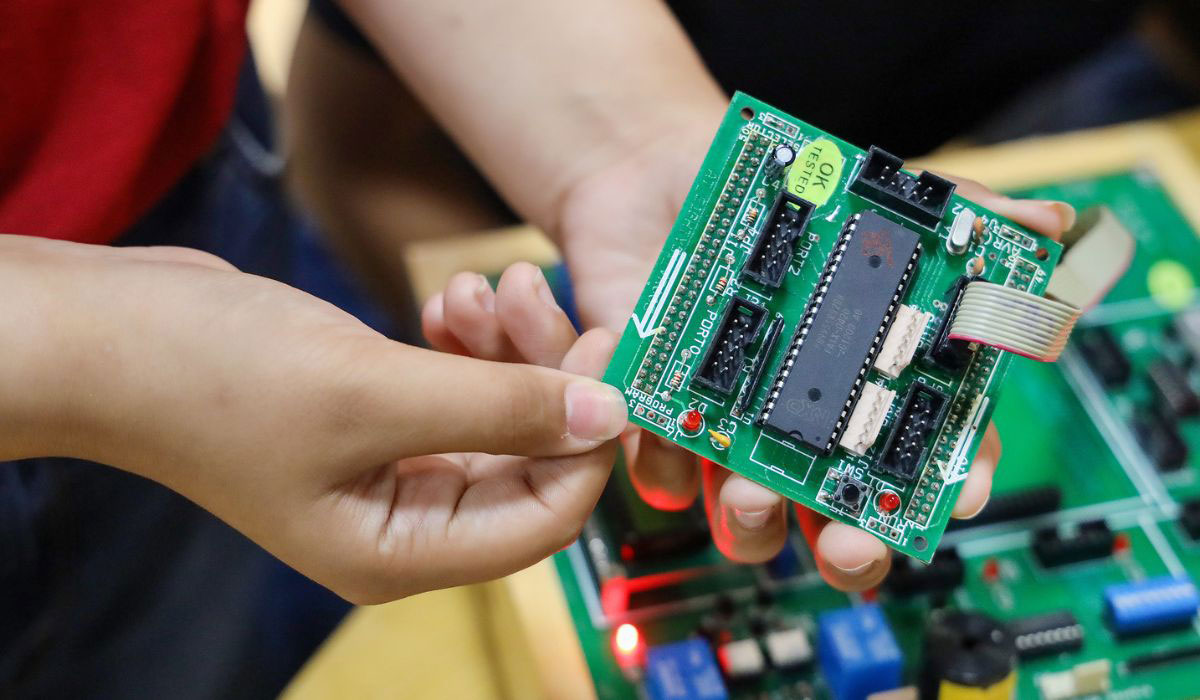Technological developments are changing how we live, work, and communicate in today’s quickly changing world. Electrical engineering, a discipline that never stops pushing the envelope of what is conceivable, lies at the core of these advancements. Electrical engineering is significantly influencing the direction of technology in the future, from smart grids to renewable energy.
Electrical engineering: what is it?
The study and application of electricity, electronics, and electromagnetic fields are the focus of the technical discipline known as electrical engineering. It includes many different fields, such as signal processing, control systems, telecommunications, power generation and distribution, and signal processing. In order to design, develop, and maintain the electrical systems that run our contemporary world, electrical engineers are essential.
Electrical Engineering’s Future
With technology advancing at an accelerating rate and a pressing demand for sustainable solutions, electrical engineering has a bright future ahead of it. Electrical engineers are in a great position to drive innovation in a number of crucial areas that will influence our future.
Renewable Energy
One of the most pressing challenges of our time is the transition to sustainable energy sources. Electrical engineers are at the forefront of this revolution, developing innovative technologies to harness renewable sources such as solar, wind, and hydroelectric power. These technologies not only reduce our reliance on finite fossil fuels but also mitigate the environmental impact of traditional energy sources. Grid integration of these renewable sources, along with energy storage solutions, is a critical focus area for electrical engineers to ensure a stable and sustainable energy future.
Smart Grids
The concept of the smart grid represents a fundamental shift in how we produce, distribute, and consume electricity. Electrical engineers are leading the development of smart grid technologies, which integrate advanced sensing, communication, and control technologies into the electricity grid. This enables more efficient use of energy, better integration of renewable sources, and improved reliability and resilience of the grid. Smart grids also facilitate the integration of electric vehicles and other distributed energy resources, paving the way for a more flexible and dynamic energy system.
Internet of Things (IoT) and Connectivity
The Internet of Things (IoT) is revolutionizing the way we interact with the world around us, and electrical engineers are driving this transformation. IoT devices, which include everything from smart thermostats to industrial sensors, rely on electrical engineering principles to function. Electrical engineers are developing the communication protocols, sensor technologies, and energy-efficient designs that are enabling the proliferation of IoT devices. These devices are not only enhancing convenience and efficiency in our daily lives but also driving innovation in industries such as healthcare, transportation, and agriculture.
Telecommunications and Connectivity
Advancements in telecommunications are transforming how we connect and communicate. Electrical engineers are playing a crucial role in developing high-speed internet, wireless networks, and communication systems that enable seamless connectivity across the globe. From 5G networks to satellite communication systems, electrical engineers are pushing the boundaries of what is possible, ensuring that we stay connected in an increasingly digital world.
Artificial Intelligence (AI) and Machine Learning
AI and machine learning are increasingly being integrated into electrical engineering systems to optimize performance and efficiency. For example, AI algorithms can be used to optimize energy consumption in buildings, predict maintenance needs in power plants, and improve the efficiency of electric grids. Electrical engineers with expertise in AI and machine learning are in high demand to develop these innovative solutions.
Electric Vehicles (EVs)
The rise of electric vehicles is another area where electrical engineers are making a significant impact. From designing more efficient electric motors and power electronics to developing charging infrastructure, electrical engineers are driving the transition to sustainable transportation. EVs not only reduce greenhouse gas emissions but also offer new opportunities for grid integration and energy
Cybersecurity
As our world becomes more interconnected, cybersecurity is a growing concern. Electrical engineers are working on developing secure communication protocols, encryption methods, and intrusion detection systems to protect critical infrastructure from cyber threats. This is particularly important in sectors such as energy, transportation, and healthcare, where the consequences of a cyber-attack can be severe.
Electrical Engineering Degree: Eligibility and Course Fees
For the most part, mathematics and physics are necessary subjects for individuals who want to study electrical engineering. Such schools ask that candidates have a high school diploma in science and math. They may also require students to sit for an admissions test meant to determine their suitability for this field.
Regarding tuition fees, how much it costs to pursue an electrical engineering degree can vary greatly depending on where one goes to college or university. On average, course fees range from 1 lac – 5,00,000 per annum but many schools have grants and financial aid programs available which could help offset these costs substantially especially when it comes down to paying off your debt after graduation!
In summary; electrical engineering is continuously developing new technologies thus making itself more dynamic each day. The role played by electricians cannot be underestimated as they work towards finding renewable sources of energy among other things that drive our future world This being so one should not hesitate while choosing whether he/she wants study Electrical Engineering since there are very many career opportunities waiting out there!
The 4-year B.E. in Electrical Engineering at Chitkara University aims to give students an all-rounded education in this ever-changing field. The course touches on many aspects including but not limited to power generation and distribution, telecommunications, control systems and signal processing. This equips learners with knowledge and skills necessary for success in electrical engineering which is a dynamic profession.
Also, read this blog post: The Future of Electrical Engineering: Evolving Trends and Innovations
Internships and industrial training are one of the unique features of this program. Students are required to go through six months up to one year of Industrial Training in blue-chip corporations as part of their curriculum; hence giving them hands-on experience that can be applied in real life situations thus increasing their chances for employability after graduating.
After finishing the course work students can easily find placements within Fortune 500 companies among other organizations worldwide thanks to industry ready skills instilled right from day one through learning from industry experts, mentors and experienced faculties who form part of teaching staffs at Chitkara University. The syllabus also keeps pace with latest trends plus new developments within this field so as not only provide but also give an added advantage over others looking for jobs
Overall, the 4-Year B.E. in Electrical Engineering at Chitkara University offers students a comprehensive education in this dynamic field, preparing them for a successful career. With a focus on innovation, sustainability, and connectivity, graduates are well-equipped to drive the future of technology and make a positive impact on society.






